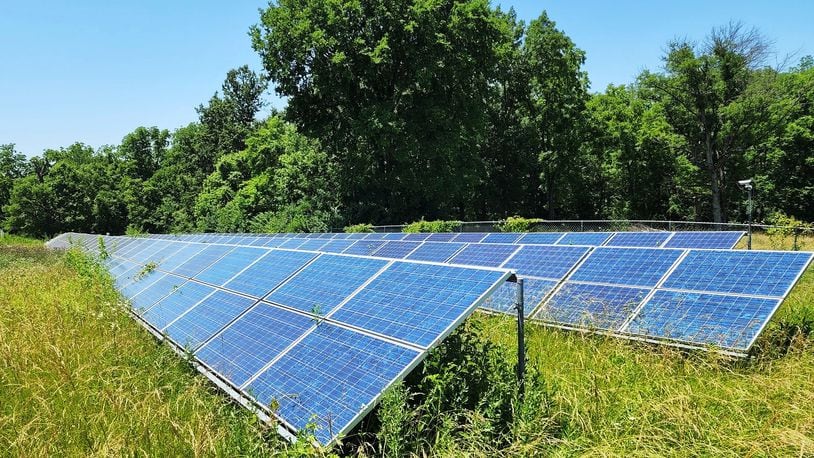The biggest change entails increasing the allowable size of out buildings like storage sheds and simplifies setbacks for the structures. On one-to-three acre lots the maximum size would increase from 1,500 to 2,100 square feet on five-plus acres the allowable square footage would jump from 3,500 to 4,500 square feet.
The townships were all consulted on the changes and Oxford Twp. Trustee Gary Salmon, who has been on the BZA board for 27 years, urged the commissioners to approve the changes, “this is going to cut down on a lot of cases that residents have to pay to come before us to get a little bit larger building approved and I think that’s good for our residents.”
“We have a lot of people coming for the bigger than what is allowed now storage buildings and stuff like that, part of the reason is they’ve got bigger toys now and they need places to put them inside,” Salmon said. “It’s a whole lot better having them sitting inside than outside.”
Hanover Twp. Administrator Bruce Henry told the commissioners the townships are “in concert” with the changes and echoed the sentiment on accessory buildings, noting it costs $500 per variance application, a fee that could be avoided with these changes.
”It comes up so often we think it’s important to the residents and taxpayers in general in the townships that they don’t have to spend money to get something approved that regularly gets approved because most of them are what I’ll call cookie cutter requests that don’t need really a public hearing or be charged a fee.”
People would also be able to park their recreational vehicles and trailers on side lots in residential areas not just in the backyard, another common variance request
“Based on variance cases that our county board of zoning appeals has received over the last number of years, these items represent the bulk of the variance requests,” Acuff said. “These changes would reduce the variances by more than half.”
The townships governed by county zoning are Hanover, Lemon, Madison, Milford, Oxford and Ross.
Acuff said some other rule changes are to correct inconsistencies and inequities like the regulations for pools. The zoning currently only pertains to regulating in-ground pools but there are some large above ground pools and people have been known to put them in their front yards.
Commissioner Cindy Carpenter said “we’re not going to kick kiddie pools out of the front yard right now, are we.” Acuff said no, blow-up pools less than 18 inches aren’t regulated.
There is also a rule that puts keeping small farm animals like chickens in the same category as horses.
“Currently our regulations make no distinction in the size of farm animas so you can have the same number of chickens as you can horses on a property,” Acuff said. “We get a number of calls throughout the years about how many chickens can I have on my property and currently it’s one per acre, so this would help correct that inequity.”
This summer, at the request from officials in 12 of the 13 townships, the commissioners approved banning commercial grade solar farms. A year ago Senate Bill 52 took effect, allowing county commissioners to prohibit utility-scale solar and wind facilities within the townships. Facilities large enough to meet the criteria of the commissioners’ banning authority would have to have the capacity to generate 50 megawatts or more.
Acuff said they are getting a lot of calls from people wanting to put small-scale solar energy systems on their properties and businesses who want to generate their own power. The zoning changes would allow for the smaller energy systems in all districts and facilities generating under 50 megawatts in industrial districts.
Commissioner T.C. Rogers noted there are a lot of homeowner associations that disallow solar panels and he wondered if the proposed regulations would supersede HOA rules.
“Our office does not enforce HOA agreements,” Development Director David Fehr said. “So if an HOA says you can’t have them, you’re not going to have them, but we would not enforce that.”
The commissioners will vote on the changes Nov. 21 and they take effect a month after that.
About the Author
